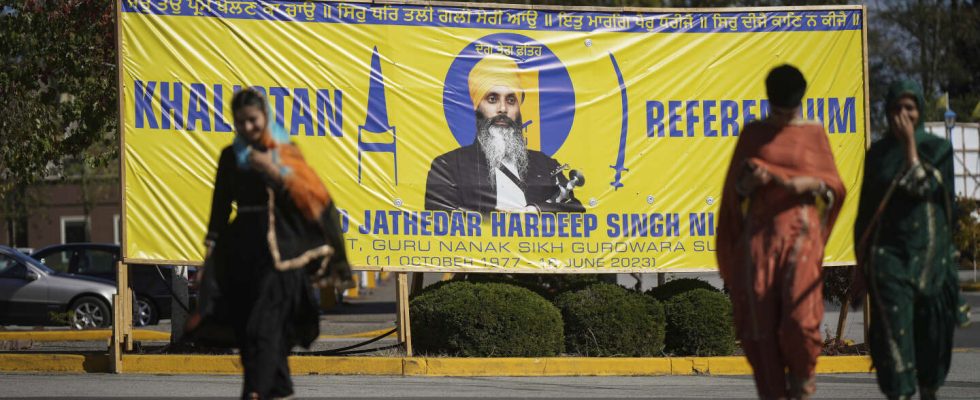Canada announced Thursday, October 19, that it had been forced to repatriate 41 diplomats based in India after New Delhi threatened to withdraw their diplomatic immunity, in the midst of a crisis between the two countries. Indo-Canadian relations actually deteriorated in September when Prime Minister Justin Trudeau raised the possible involvement of the Indian government in the assassination of a Sikh leader in June near Vancouver. Accusations immediately qualified as“absurd” by the Indian government, which had recently requested the departure of Canadian diplomats.
“We have taken the decision to organize the departure of 41 diplomats and their families”, whose diplomatic immunity had been revoked by India, said Canadian Foreign Minister Mélanie Joly. Speaking of a “unprecedented situation” and a “violation of international law”the minister however clarified that Canada did not intend to respond by revoking the immunity of Indian diplomats, in order not to “make the situation worse”.
“If we accept this way of doing things, no diplomat, any diplomat, will be safe on the planet. This is why Canada will not take the same approach as India”, she added. She clarified during a press conference that 21 Canadian diplomats remained on duty on Indian soil.
“Canada will continue to defend international law, which applies to all nations, and will continue its dialogue with India. “Now more than ever, we need diplomats on the ground and we need to talk to each other.”, she added. In India, services at consulates in Chandigarh, Bombay and Bangalore have been interrupted, said Immigration Minister Marc Miller.
Largest Sikh community outside India
However, relations between the two countries are numerous, with strong Indian immigration to Canada. But the murder of Hardeep Singh Nijjar in Western Canada changed their relationship. The latter was shot dead in June by two masked men in the parking lot of the Sikh temple he led, near Vancouver, British Columbia. He died of his injuries on the spot.
Campaigner for the creation of “Khalistan”, an independent Sikh state in northern India, he arrived in Canada in 1997 and was naturalized in 2015. He was wanted by Indian authorities for alleged acts of terrorism and conspiracy to commit murder. Accusations that he denied, according to the World Sikh Organization of Canada, a group defending the interests of Canadian Sikhs.
India has since asked its citizens to avoid traveling to certain regions of Canada, “given the increase in anti-Indian activities and hate and criminal crimes with political connotations in Canada”. And the country has suspended visa processing in Canada.
New Delhi has often complained about the activity of the Sikh diaspora abroad, particularly in Canada, likely, according to it, to revive the separatist movement thanks to massive financial aid. Canada is the country with the largest number of Sikhs outside of India. The Indian state of Punjab, which is about 58% Sikh and 39% Hindu, was rocked by a violent Sikh separatist movement in the 1980s and early 1990s that left thousands dead.
The World Application
The Morning of the World
Every morning, find our selection of 20 articles not to be missed
Download the app
These diplomatic tensions are closely followed elsewhere in the world, notably by Washington. However, the matter is delicate for the United States, a neighboring country and historic ally of Canada, but which has undertaken, under the leadership of President Joe Biden, to forcefully move closer to the Indian government led by Narendra Modi.

